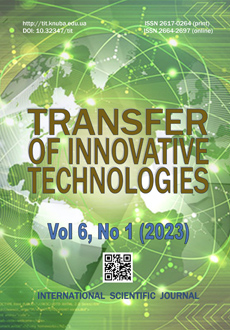Generative Ai: potential and pitfalls
DOI:
https://doi.org/10.32347/tit.2023.61.0301Keywords:
Generative AI, Artificial intelligence, Decision support, Content creation Information systemsAbstract
The explosive popularity of ChatGPT around the world gave us the first real tipping point in public acceptance of AI. Finally, everyone, everywhere can see the breakthrough potential of this technology for themselves. Large language models (LLM) and the fundamental models underlying these advances in generative artificial intelligence (GenAI) represent a significant turning point. Not only have they cracked the code of language complexity, allowing machines to learn context, infer intent, and be independent creative individuals, but they can be quickly configured to perform a wide variety of different tasks. This technology should fundamentally change everything — from science, business, health care to, in fact, society itself. The positive impact on human creativity and productivity will be enormous. Companies will use these models to rethink the way work is done. Every role in every enterprise has the potential to be reimagined, as AI people working as co-pilots become the norm, greatly expanding their capabilities. Generative AI will affect tasks, not professions. Some of these tasks will be automated, some will be transformed by artificial intelligence, and some will remain unchanged. It can also be expected that humans will face a large number of new challenges, such as ensuring the accurate and responsible use of GenAI systems. That's why organizations that invest in training people to work with generative AI will have a significant advantage.
References
Ferrara E. (2023). Should ChatGPT be biased? Challenges and risks of bias in large language models. arXiv:2304.03738.
Eloundou T., Manning S., Mishkin P., Rock D. (2023). GPTs are GPTs: an early look at the labor market impact potential of large language models. arxiv:2303.10130, accessed 03 April 2023.
Open AI. (2022). Introducing ChatGPT. https://openai.com/blog/ chatgpt, accessed 25 Aug 2023.
Schoormann T, Strobel G., Mo¨ller F., Petrik D., Zschech P. (2023). Artificial intelligence for sustainability: a systematic review of information systems literature. Commun AIS 52(1), 8.
Zilker S., Weinzierl S., Zschech P., Kraus M., Matzner M. (2023). Best of both worlds: combining predictive power with interpretable and explainable results for patient pathway prediction. In: Proceedings of the 31st European Conference on Information Systems (ECIS), Kristiansand, Norway.
Downloads
Published
How to Cite
Issue
Section
License
Copyright (c) 2023 Iryna Yasenova, Oksana Berdnyk

This work is licensed under a Creative Commons Attribution 4.0 International License.
Our journal abides by the CREATIVE COMMONS copyright rights and permissions for open access journals.
Authors, who are published in this journal, agree to the following conditions:
1. The authors reserve the right to authorship of the work and pass the first publication right of this work to the journal under the terms of a Creative Commons Attribution License, which allows others to freely distribute the published research with the obligatory reference to the authors of the original work and the first publication of the work in this journal.
2. The authors have the right to conclude separate supplement agreements that relate to non-exclusive work distribution in the form in which it has been published by the journal (for example, to upload the work to the online storage of the journal or publish it as part of a monograph), provided that the reference to the first publication of the work in this journal is included.




